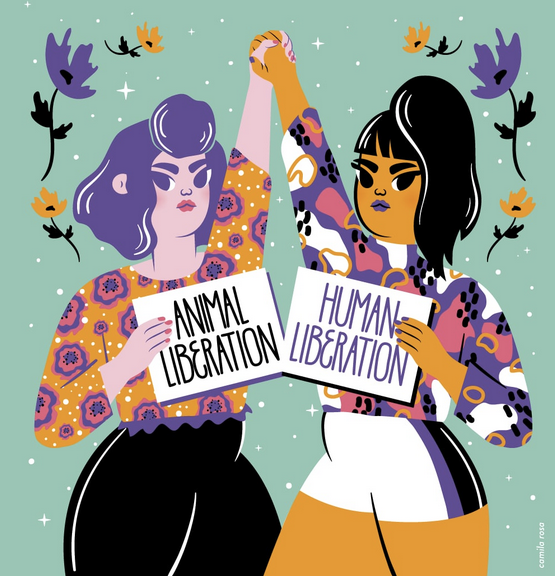Representation of Ecofeminism in Media
- Emma Huerta

- Oct 16, 2018
- 3 min read
Updated: Nov 7, 2018

Ecofeminism is greatly represented within different forms of social media in order to spread its message and to try and educate the viewers about the advantages of living an ecofeminist lifestyle. Additionally, with celebrity endorsements, like that of Beyoncé, more individuals become curious about the details of this lifestyle and thus more likely to adapt to a vegan or ecofeminist way of living. The representation of ecofeminism in the media takes many different forms in regards to different platforms and varying creative representations, thus impacting the movement as a whole.

Social Media is becoming an asset to millenials everyday lives as we grow alongside technology and utilize our friends, celebrities, and organizations posts and status updates as driving forces behind our actions. A huge example of this that greatly impacted the vegan community is when Beyoncé announced her switch to veganism and her take on this new diet. Additionally, many famous chefs are coming out with vegan cookbooks that in turn educate and popularize a vegan lifestyle to their audience. Vegan diets have become more popularized among millenials and a common term used among many due to the advertisement campaigns by companies like PETA and their endorsement of operations including the “Sexy Vegan Cookbook by L. Brian Patton and pop singer Beyonce’s endorsement of a vegan diet” (Fegitz, 294). This further exaggerates the importance of representing ecofeminism and veganism within the media, as it claims a larger audience and allows the viewers to become well versed in the lifestyle and see how pop culture stars who they may look up to adapt to this way of life. This lifestyle of ecofeminism and veganism become marketable in the face of celebrities (Doyle, 777). This quote reigns true as celebrities decide to portray an ecofeminist lifestyle as one that is not only advantageous to the surrounding world, but one that highlights a better life for oneself as well. The genre of Instagram is extremely prevalent in advocating for a vegan lifestyle as it allows individuals and organizations to post pictures of attractive vegan food as well as pictures and statements surrounding the negativity and violence in animal agriculture.

Instagram accounts that promote a vegan and ecofeminist lifestyle aim to target an audience of followers of this lifestyle as well as individuals who need that extra convincing that they can provide through their posts. One major way that influencers gain a vegan following is by posting pictures of their food to show how delicious and easy it can be to transition to veganism. It has become clear in the media that over the last decade there has been a “noteworthy shift in mainstream media representations of vegan diets: vegetables have become sexy” (Fegitz, 295). This quote further portrays the appeal that a vegan diet has to offer, as instead of eating the remains of an animal, who had to suffer to be on your plate, colorful and vibrant vegetables can replace this and provide even more health benefits. The most important part of vegan representation in the media is showing aspiring vegans their different options in food choices as well as the mass impact they will be making in the world around them as they ditch the standardized western diet. From another point of view, feminist perspective is currently in the stages of greatly benefiting the locavore movement, which stands for the importance of eating locally grown food (Rudy, 28). This quote exemplifies how feminist thinking has a lot to suggest in terms of locavorism and veganism because feminists see the importance of rejecting animals products, as women and animals endure a similar fight for liberation, and the importance of eating locally as it eliminates the middleman. This movement is also exaggerated through the genre of Instagram as this platform allows for pictures of food to be posted, especially locally grown and vegan food. This is extremely beneficial to upcoming vegans as it allows them to see the healthy and delicious options within their area that would not only support the local economy, but reduce their adverse impact upon the world around them as well.




Comments